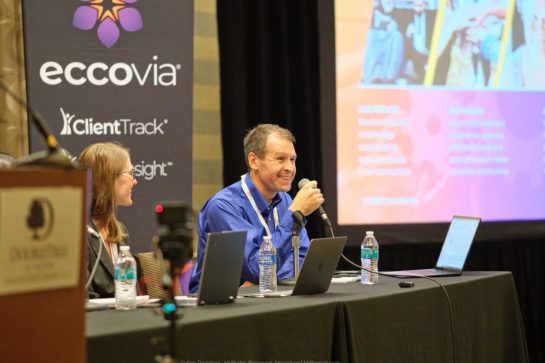ClientConnect 2023, our inaugural peer-to-peer conference for human services organizations, was a resounding success! But if you missed out, don’t let that stop you from catching the next one. In this article, we’ll explore the ClientConnect presentations from our client-partner organizations, so you know what to expect next time in 2024.
It’s no secret that the frequent changes in health and human services are difficult to keep up with. From updates to HUD’s data standards to emerging technology and new policies, social service providers need a leg up. That’s why we at Eccovia created ClientConnect, our one-day educational conference that followed right after NHSDC’s fall conference in Philadelphia. If you didn’t get a chance to attend, this article will summarize what we heard, saw, and felt at our inaugural ClientConnect conference, which took place on October 26, 2023. So even if you felt some FOMO from not being able to attend, here are some of the highlights of the experience!
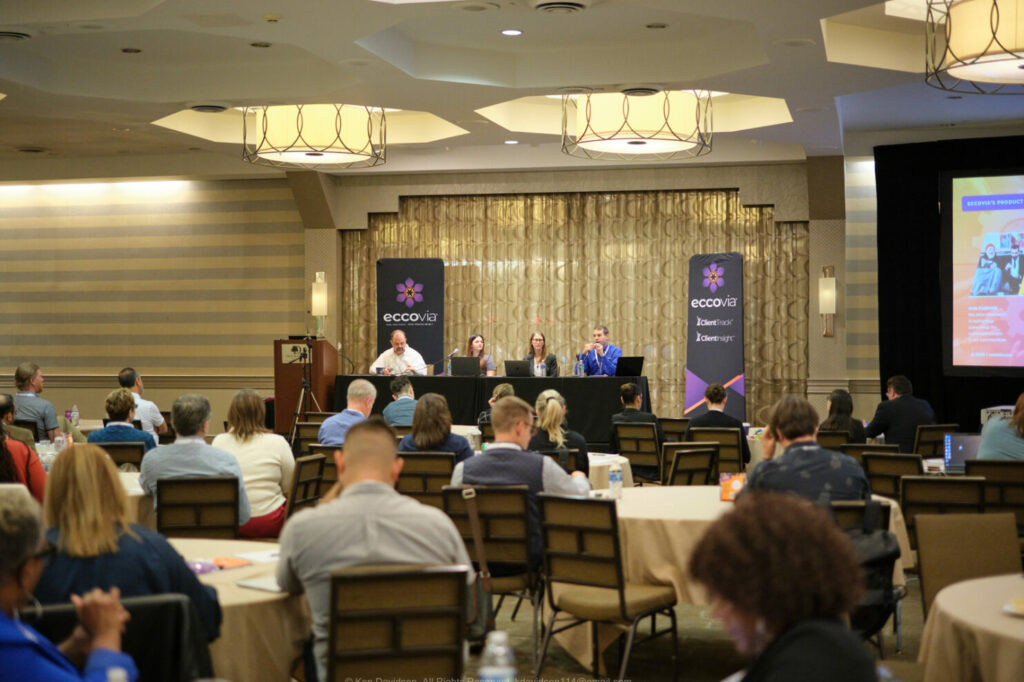
Data Services for Nonprofits: Metropolitan Alliance of Connected Communities
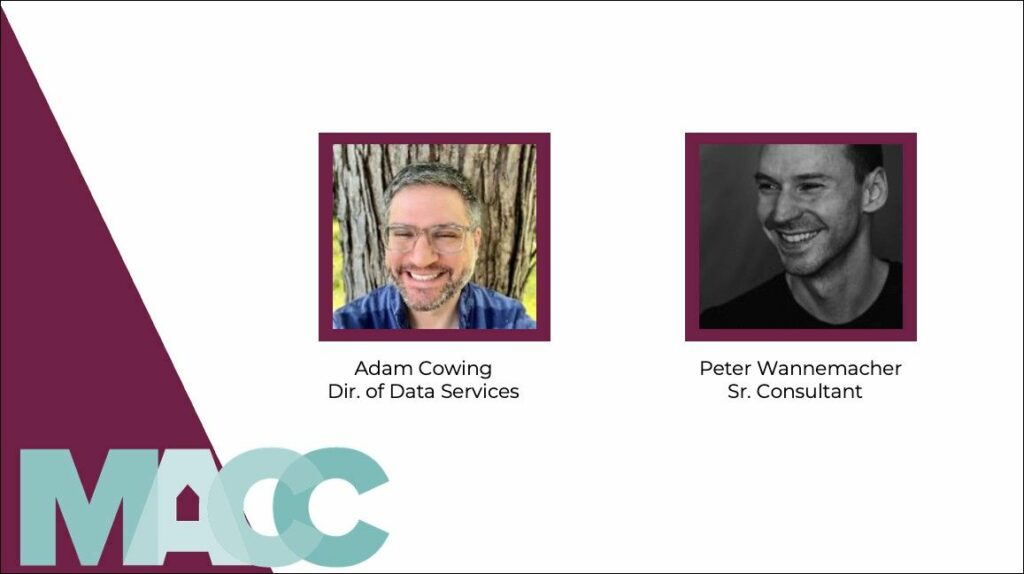
We heard from the Metropolitan Alliance of Connected Communities (MACC), a nonprofit organization that leverages ClientTrack. MACC is an organization that provides resources and infrastructure for social service providers in Minnesota’s Twin Cities. Rather than provide social services directly, they support providers with shared administrative services, such as:
- Capacity building and ongoing education for nonprofits
- Networking and innovation events and projects
- CEO roundtable
- Human resources support
- IT infrastructure
- Finance and accounting support
- Government contracts
- Behavioral health billing
- Data services (via ClientTrack)
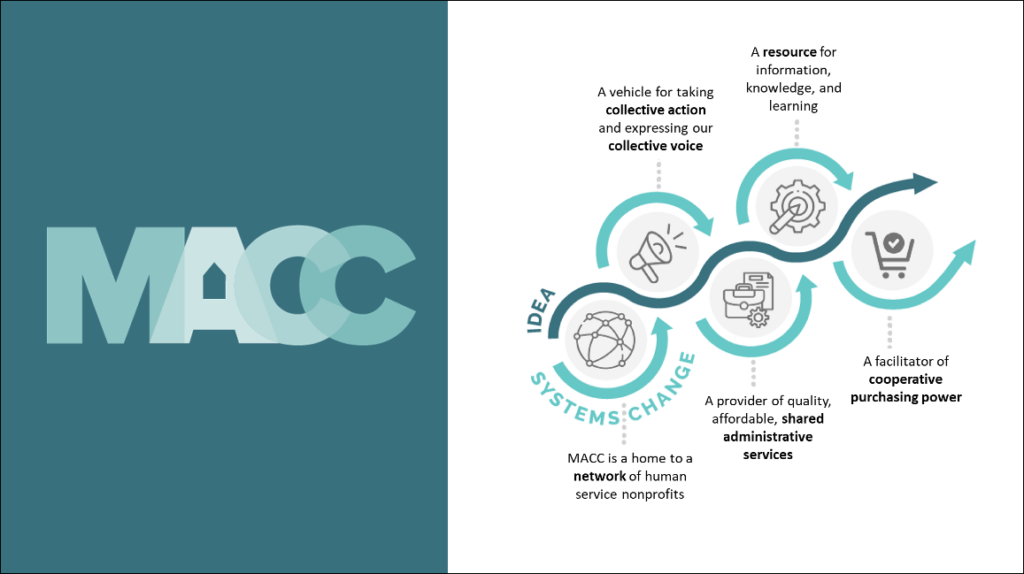
They currently serve 40 member-organizations and have had more than 1,800 ClientTrack users since 2022. MACC’s influence extends to about 135,000 clients throughout 73 Minnesota counties and 15 Wisconsin counties.
In their session, “Relationships and Relational Databases: An Ecosystems Approach to Data,” MACC talked about their unique “data services” model and how they are “part cohort, part support group” for network members. As a consulting organization, MACC is the primary administrator for their clients’ ClientTrack environments, which means they support members with:
- ClientTrack administration and development
- Data governance best practices
- Institutional knowledge
- Data strategy consulting
- Technical training
In other words, local social service providers join MACC because of their expertise across many health and human services when it comes to database administration and the attendant policies and procedures that lead to a healthy “data culture.”
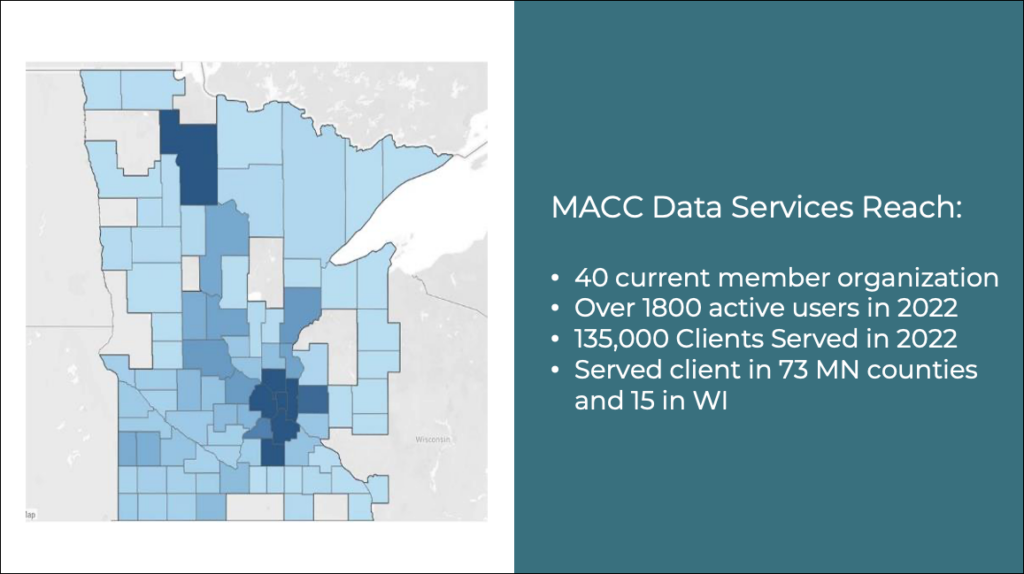
MACC’s Perspective on Data Culture and Data Justice
So what is a healthy data culture? MACC contended that data should be useful insofar as it:
- Benefits individuals and communities
- Furthers the mission of the organization
- Becomes part of a specific utilization plan
However, data has costs, from the financial (i.e., wages, devices, software) to the human (i.e., barriers to service, emotional costs). For example with the latter, many intake processes have potential to cause secondary trauma or at least incur extreme discomfort for clients.
So we better make sure the data is high quality (i.e., accurate), because many times, we get few opportunities to collect accurate, comprehensive data from clients upon assessment or intake.
In that vein, data justice is a concept that MACC builds into their data practices. While upholding truth and learning, consent and accountability have to be taken into account. For example, trauma-informed intake is a way to make sure clients experience the minimum amount of discomfort or emotional cost possible—in other words, only collect data when you have a clear purpose for it.
Diverse Program Management: CAMBA
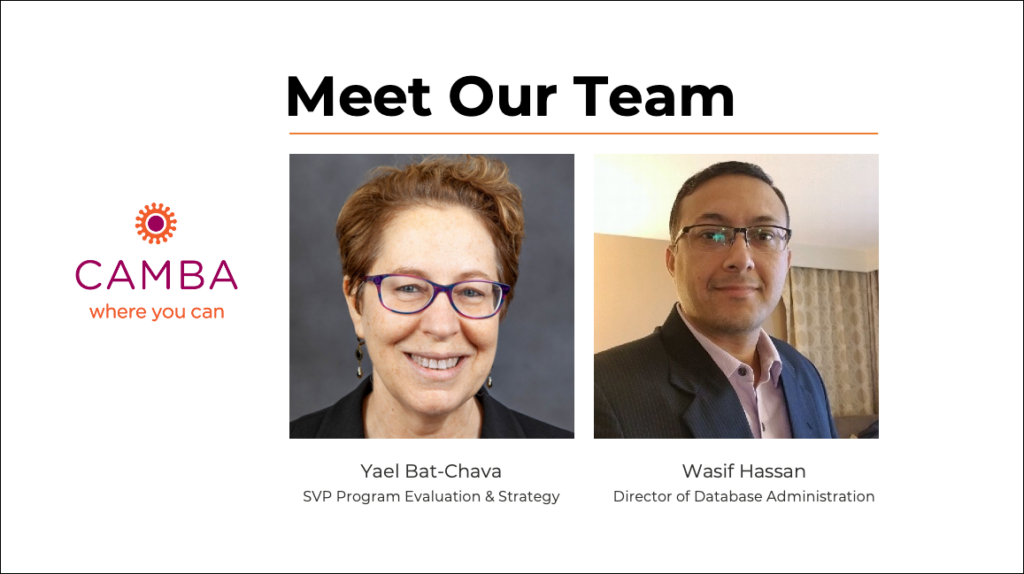
Founded in 1977, CAMBA started out as an economic development organization that later grew to include improving social determinants of health (SDoH) for clients. Now employing 1,800 people and serving more than 65,000 clients with about 160 programs, CAMBA covers six main areas:
- Housing stability
- Education and youth development
- Family and community support
- Health care
- Economic development
- Legal services
Six years ago, CAMBA founded its Data, Assessment, Research, and Evaluation (DARE) team to help CAMBA become more data driven. Within this team, two smaller teams emerged:
- Program evaluation, business analysis, data analysis
- Database administration
Becoming Data Driven
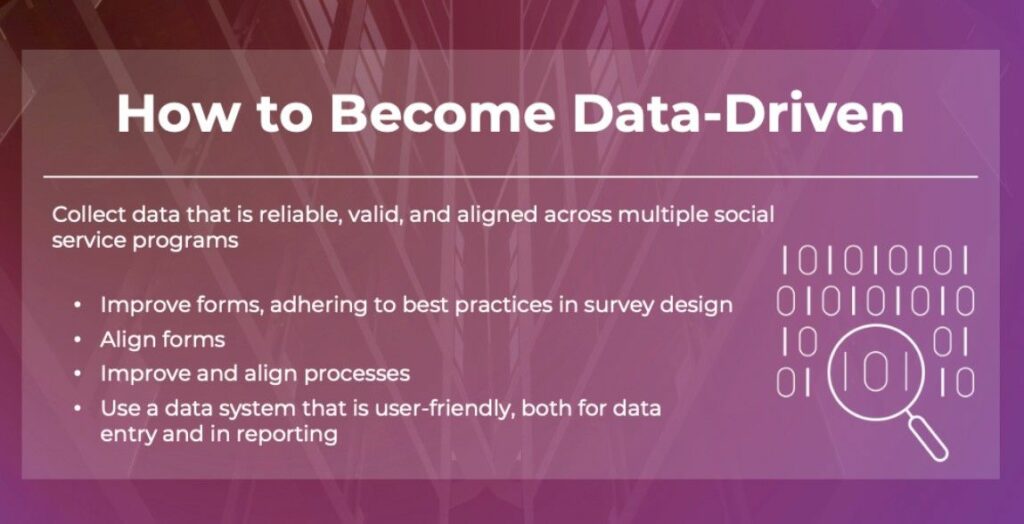
Data needs to be collected in a way that’s reliable, valid, and aligned across multiple social service programs. Before DARE was created, there was limited ability for syncing all CAMBA’s data together, so there was no systematized way of evaluating the outcomes of programs. For example, before implementing ClientTrack, each of CAMBA’s nearly 50 housing programs had its own intake forms, even though programs were essentially delivering the same services and collecting the same information. Because data wasn’t collected the same way (e.g., intake questions that ask for the same data point in different ways), outcomes could not be measured in the same way.
That’s why CAMBA recommended:
- Aligning forms across all programs
- Improving forms to adhere to best practices in survey design
- Adhering to a client/consultant relationship across the organization to earn trust
- Using a data system that is user friendly for data entry and reporting
The Internal Client Relationship
CAMBA described this customer service process as a long-term process that requires:
- Creating logic models and selecting metrics for measurement
- Gathering business requirements and converting those into functional requirements for the database
- Building set-ups and migrating data if needed
- Training line staff and managers in data entry
- Designing reports and dashboards
- Training managers to use reports for staff supervision and reporting
- Analyzing data to track outcomes
- Creating multiple reports ahead of time to show the value of the database
Next in CAMBA’s journey is a continued expansion of their ClientTrack environment. Eccovia has created set-ups for 2 programs, one with 12 sites, and the DARE team has added 54 more programs from their original 13, for a total of 67. They are continuing to incorporate more programs into the system, train managers to own their data, and help supervise staff with their data questions and concerns.
The Gist: Data Consistency and Responsible Governance
Between CAMBA and MACC, we learn some valuable, converging ideas that health and human service providers would do well to incorporate:
- Your program services are only as good as the data quality, so work within to improve the organization’s data culture.
- Data quality comes with costs, so make sure your intake processes are uniform and streamlined.
- ClientTrack adapts to the needs of large and small organizations alike, but to maximize the benefits, it’s important to consider administrative best practices.
In the next article of this two-part series, we’ll cover some of the ideas presented by our partner organizations ICF and Health Roads! If you would like to learn how ClientTrack can facilitate better data processes for your organization, we recommend scheduling a demo with one of our human services experts. If you would like to join the waitlist for the next ClientConnect, fill out this form. We also encourage you to subscribe to our monthly newsletter for emerging product news, industry best practices, and more!
